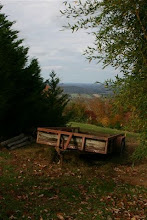The Obsession of Certain Members
Things we will miss (not a complete list):
Our group--Carl and Franciie, Duane, Leanna, JC, Britni, Liz, Shannon, Melissa, Bryan (aka Duane), Luke, Cody, William, Brannon, Becky, Caroline (aka Carolina, Carolin), Micki and me--the meals together, Bible study led by Duane, Carl, and Becky at the Black House, lots of laughter and a few tears, sharing of frustrations, losses and victories;
Gathering at the Black House
Games of Catch Phrase (spectator here), less than dignified dancing to Lion King (spectator again), watching nine people who had shared four difficult years work and play together; church at Kibogora Free Methodist with a 1000 of our closest friends,
Kibogora Free Methodist Church
JC Bataneni, our Congolese surgeon and friend, who is back at Nebobonga in the Congo, and Leanna, who is headed back to the northwest U.S. to continue training for her July marathon--she ran every day, using her GPS watch to measure distance.
JC and Leanna
a day in Amsterdam;
The Ladies at Grand Centraal in Amsterdam
Rounds on Destin and "Buddha Belly":
Buddha Belly and Mom
sitting in the "internet breezeway" after rounds while being stalked by a local psych patient;
Britni, Liz, and Caroline in The Internet Breezeway (with "friend")
early mornings looking out over Lake Kivu,
The View from Our Compound
the walk to Kumbya Retreat,
The Road to Kumbya Retreat
The View from Kumbya
Micki at Kumbya Retreat
time at Good News Guest House in Kigali
Good News International Guest House
Back yard of Good News Guest House overlooking Kigali
Our night at Kinigi Guest House at Volcanoes National Park, gorillas trek stories, bus rides complete with "one lane chicken" provided by our driver** (see ** below)
The Congolese, Rwandan, and European staff members that befriended us and helped us feel welcome upon our arrival, and with whom we worked side by side for three weeks; especially Edi, our German friend who helped us "learn the ropes" even if "the sky was falling"; Jeanne Paul, the head nurse who always seemed to be able to get someone shipped to Kigali or Butare when they REALLY needed to go; Dr. Ngoy, our Congolese "pediatrician" with whom we shared three weeks of patient care and good humor, and Madeline, the Head Nurse on Peds, who "did not have good Eeeenglish" but always knew what we needed and provided it.
Dr. Ngoy with Britni Bradshaw and Liz Donahue
On the Pediatric Deck with Madeline, the Head Nurse
The patience of our patients--their most demanding moments were when they asked to go home; they were cooperative, accepting, and appreciative.
The beauty of our surroundings--every part of Rwanda we saw could have been made into a postcard for a tropical paradise (except for the road construction). Lake Kivu and its environs were gorgeous--its too bad schisto kept us from being able to enjoy the Lake fully.
The national attitude toward a clean environment--Rwanda has a national clean up day ONCE A MONTH where markets are closed and everyone is expected to help make their surroundings more beautiful. Litter was virtually absent--I saw one plastic bottle loose on the road and a couple of slips of paper in several hundred miles of driving.
Home made soccer balls: children will find a way to play ball, and ball in Rwanda is football (soccer). They tightly wrap dozens of plastic bags together and bind them with twine to create a functional, though slightly less than spherical, soccer ball. Some of the guys on our team swapped them a real soccer ball for one of the local creations--wonder which one will last the longest?
Little kids with plastic water jugs perched on their heads--children in Rwanda are brought into the family work force early, helping to cart the daily water needs from source to home in dingy yellow jugs that they balance on their heads hands free. The work ethic here is a necessity of survival.
Missionary midnight: 9 p.m. The older ones of us were asleep by 9 each night or shortly thereafter. We learned from the U.S. missionaries in Kigali that 9 p. was "missionary midnight".
Things we probably won't miss:
9 hour plane rides (x2) and (x2)
8 hour bus rides with a driver whose first two names must have been Kinyarwandan for Richard Petty.**
90 degree neonatology units
mosquitoes and the risk of malaria
patients for whom we had no answers
attack rats in our houses
houseflies and horseflies in the OR and L and D
tuna soup
power outages with a 15 minute generator delay
apathy and fatalism
stories of grenade attacks
reminders of the genocide
"Mazunga!! Give me some money!"
no portable xrays for babies
no ventilators for babies or adults
Both lists could go on.
God gives each of us unique opportunities in life. We either avail ourselves of them or they pass us by. They do not generally come again. For that reason, I regret that I waited until age 62 to join a mission group. At the same time, I am so grateful that circumstances brought us all together and gave each of us the opportunity to go to Kibogora. Each of us might go again, but not on this trip with this group of individuals. Part of the recovery from travel is jet lag, part is missing the group and adjusting to "normal" life back home. I'm glad the most important member of the group for me (Micki) came home with me!!
Micki
On the Path from Compound to Hospital Kibogora

.JPG)
.JPG)
.JPG)
.JPG)
.JPG)
.JPG)
.JPG)
.JPG)
.JPG)
.JPG)
.JPG)
.JPG)
.JPG)
.JPG)
.JPG)